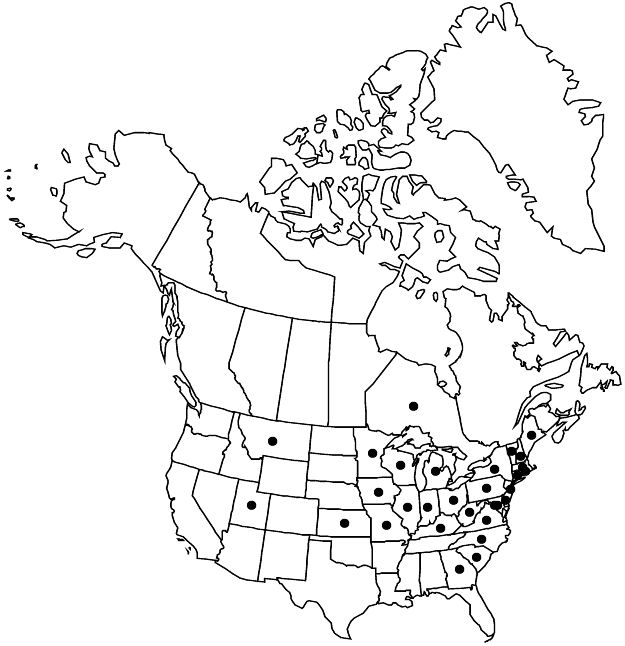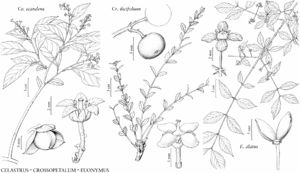Euonymus alatus
Verh. Batav. Genootsch. Kunst. 12: 49. 1830. (as Evonimus)
Shrubs 1–4(–7) m. Stems erect; young branches 4-angled, becoming corky winged. Leaves deciduous; petiole 0.5–4 mm; blade narrowly elliptic, 2.5–6 × 0.5–2.5 cm, base attenuate or cuneate, margins denticulate, apex acuminate. Inflorescences axillary, (1–)3(–7)-flowered. Flowers: sepals 4; petals 4, yellowish green or white, oblong, 2–3 × 1.5–2 mm; stamens 4; ovary smooth. Capsules purple-brown, obovoid, 8–10 × 5–15 mm, deeply 2–4-lobed to base or only 1 lobe developing, lobes nearly distinct, surface smooth. Seeds ellipsoid, 7–8 × 4–5 mm; aril yellow or orange. 2n = 64.
Phenology: Flowering spring–fall; fruiting summer–fall.
Habitat: Roadsides, old fields, thickets, woodlands.
Elevation: 0–400 m.
Distribution

Introduced; Ont., Conn., Del., D.C., Ga., Ill., Ind., Iowa, Kans., Ky., Maine, Md., Mass., Mich., Minn., Mo., Mont., N.H., N.J., N.Y., N.C., Ohio, Pa., R.I., S.C., Utah, Vt., Va., W.Va., Wis., e Asia.
Discussion
The leaves of Euonymus alatus become bright red or reddish purple in fall, one of the reasons for its widespread use as an ornamental.
Selected References
None.
